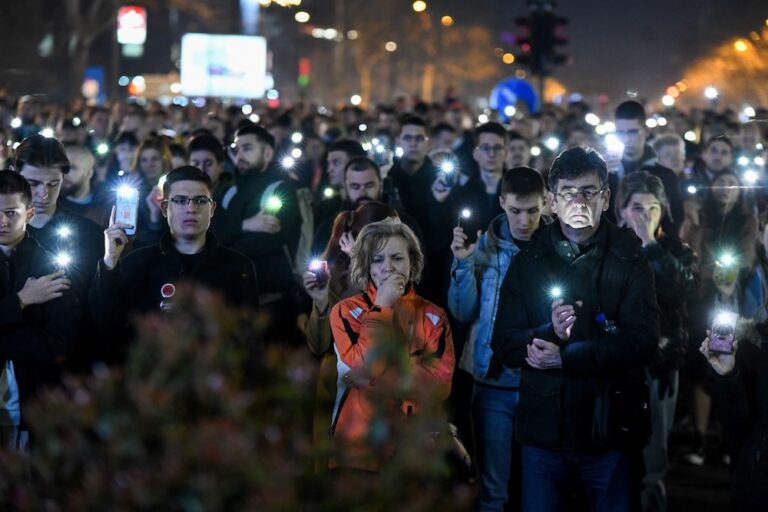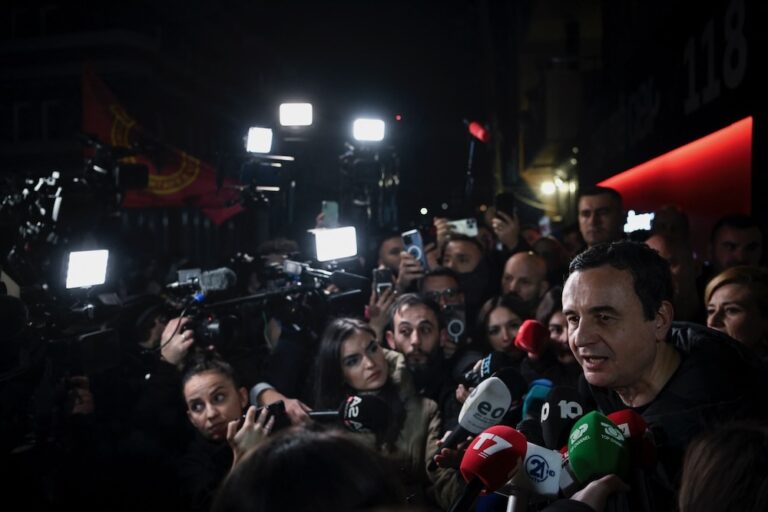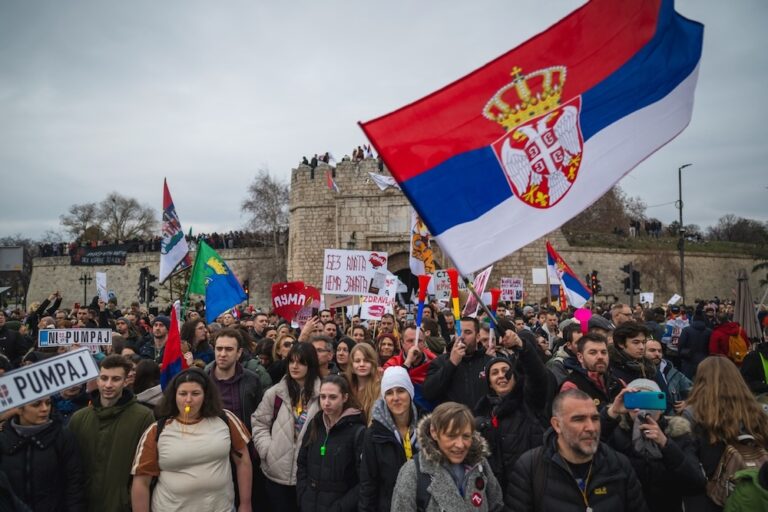(RSF/IFEX) – On 11 April 2003, RSF protested over the arrest and detention of journalists Milovan Brkic and Dragisa Petrovic as part of the police investigation into the 12 March assassination of former Serbian prime minister Zoran Djindjic. Brkic is the Belgrade correspondent for the Podgorica, Montenegro daily newspaper “Dan”, and Petrovic is the paper’s […]
(RSF/IFEX) – On 11 April 2003, RSF protested over the arrest and detention of journalists Milovan Brkic and Dragisa Petrovic as part of the police investigation into the 12 March assassination of former Serbian prime minister Zoran Djindjic.
Brkic is the Belgrade correspondent for the Podgorica, Montenegro daily newspaper “Dan”, and Petrovic is the paper’s correspondent in Kragujevac (north of Belgrade). The journalists were arrested on 7 April on suspicion of involvement in Djindjic’s murder. This followed the publication of several articles in which they accused the government of having ties with underworld gangs. Police say they may themselves be involved with the principal murder suspects, the Zemun Gang. They claim the journalists had agreed to assist the criminal gang by obstructing the inquiry through articles that “deliberately mislead the public.”
“The arrest of the two journalists, because they criticised the government in print, is extremely serious and a crime against free expression,” RSF Secretary-General Robert Ménard said in a letter to Interior Minister Dusan Mihajlovic and Culture and Information Minister Branislav Lecic. “No evidence has yet been presented to demonstrate that the journalists have links with the gangs. We ask you to explain why they have been arrested and to free them at once if their writings are the sole basis for the justification of their detention,” Ménard added.
The state of emergency declared after Djindjic’s murder allows police to detain anyone who “threatens the safety of other citizens” for up to 30 days. During this period, suspects are not permitted to contact a lawyer or family members, nor are they allowed to appear in court. The Interior Ministry can extend the detention period for an additional 30 days.
On 18 March, the Culture and Information Ministry suspended distribution of “Dan” after it published several articles questioning the state of emergency and related government measures. The Stampa Komerc Distributing Company was also fined 200,000 dinars (approx. US$3,500; 3,300 euros) (see IFEX alerts of 21 and 20 March 2003).
A 17 March decree restricting media reporting on the reasons for the state of emergency and about its implementation, signed by Parliament Speaker Natasa Micic, banned publication of news on Djindjic’s murder that is not confirmed by the government. It provides for fines of up to 500,000 dinars (approx. US$8,700; 8,200 euros) and the suspension of concerned media (see alerts of 21, 20 and 14 March 2003).


